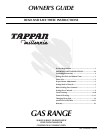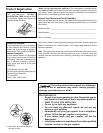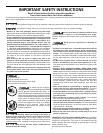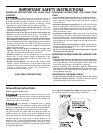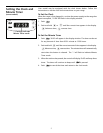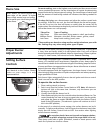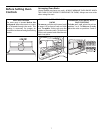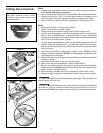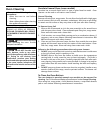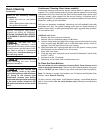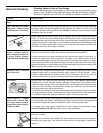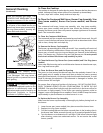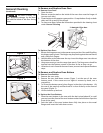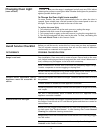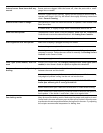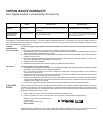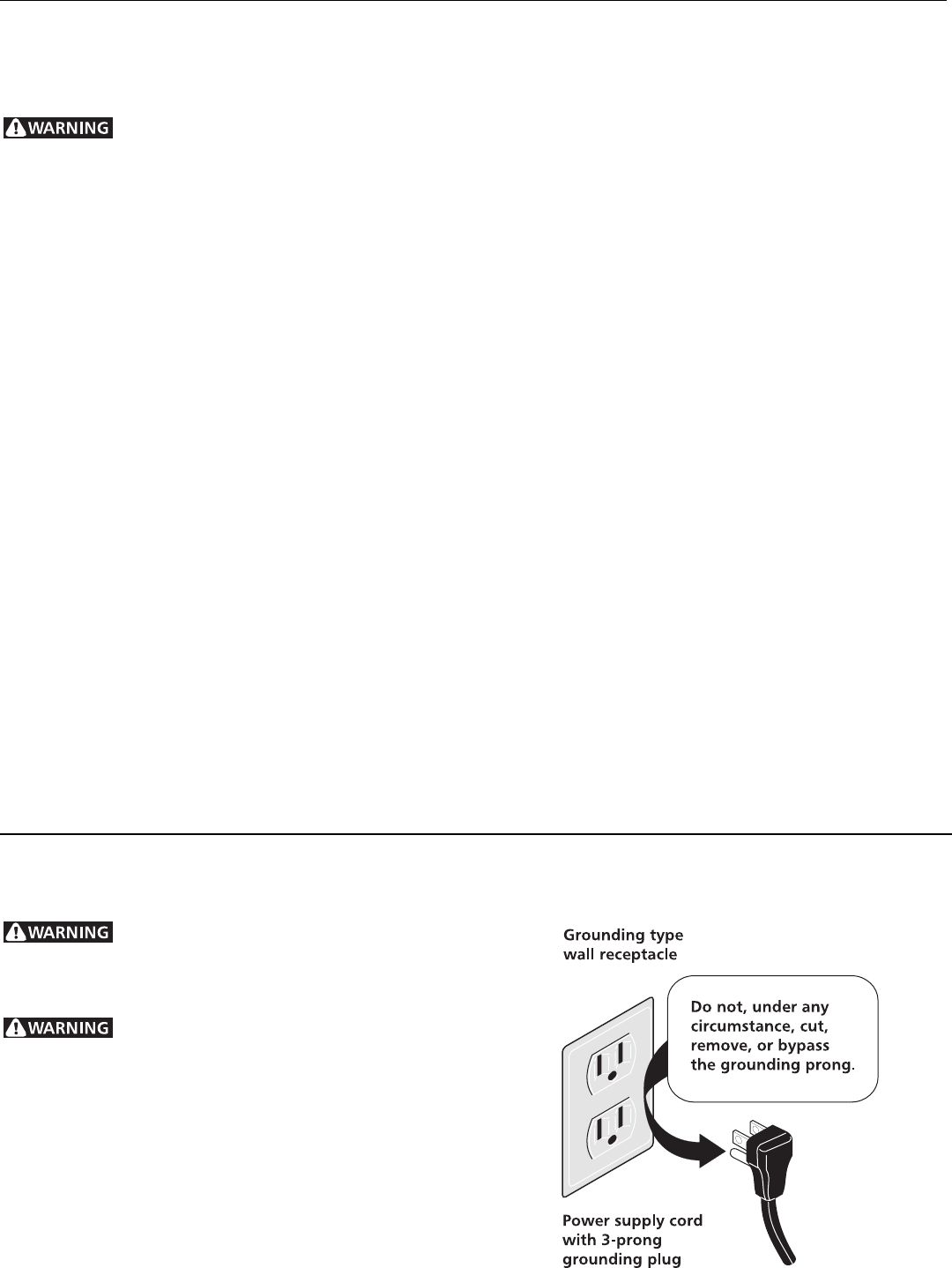
4
IMPORTANT INSTRUCTIONS FOR USING YOUR
COOKTOP
Use Proper Flame SizeAdjust flame size so it
does not extend beyond the edge of the utensil. The use of
undersized utensils will expose a portion of the burner flame to
direct contact and may result in ignition of clothing. Proper
relationship of utensil to flame will also improve efficiency.
Know which knob controls each surface burner. Place a pan
of food on the burner before turning it on, and turn the burner
off before removing the pan.
Always turn knob to the full LITE position when igniting top
burners. Visually check that burner has lit. Then adjust the
flame so it does not extend beyond the edge o the utensil.
Utensil Handles Should Be Turned Inward and Not Extend
Over Adjacent Surface BurnersTo reduce the risk of burns,
ignition of flammable materials, and spillage due to unintentional
contact with the utensil, the handle of the utensil should be
positioned so that it is turned inward, and does not extend over
adjacent surface burners.
Never Leave Surface Burners Unattended at High Heat
SettingsBoilovers cause smoking and greasy spillovers that
may ignite, or a pan that has boiled dry may melt.
Protective LinersDo not use aluminum foil to line surface
burner pans, or oven bottom, except as suggested in this
manual. Improper installation of these liners may result in risk
of electric shock, or fire.
Glazed Cooking UtensilsOnly certain types of glass, glass/
ceramic, ceramic, earthenware, or other glazed utensils are
suitable for cooktop service without breaking due to the sudden
change in temperature. Check the manufacturers
recommendations for cooktop use.
IMPORTANT INSTRUCTIONS FOR USING YOUR
OVEN
Use Care When Opening Oven Door or Warmer Drawer
Stand to the side of the range when opening the door of a hot
oven. Let hot air or steam escape before you remove or replace
food in the oven.
Keep Oven Vent Ducts Unobstructed. The oven vent is located
below the backguard. Touching the surfaces in this area when
the oven is operating may cause severe burns. Also, do not place
plastic or heat-sensitive items on or near the oven vent. These
items could melt or ignite.
Placement of Oven Racks. Always place oven racks in desired
location while oven is cool. If rack must be moved while oven is
hot use extreme caution. Use potholders and grasp the rack with
both hands to reposition. Do not let potholders contact the hot
heating elements in the oven. Remove all utensils from the rack
before moving.
Do not use the broiler pan without its insert. The broiler pan
and its insert allow dripping fat to drain and be kept away from
the high heat of the broiler.
Do not cover the broiler insert with aluminum foil. Exposed
fat and grease could ignite.
IMPORTANT INSTRUCTIONS FOR CLEANING YOUR
RANGE
Clean the range regularly to keep all parts free of grease that
could catch fire. Pay particular attention to the area underneath
each surface element. Do not allow grease to accumulate. Refer
to the hood manufacturers instructions for cleaning.
Kitchen cleaners and aerosolsAlways follow the
manufacturers recommended directions for use. Be aware
that excess residue from cleaners and aerosols may ignite
causing damage and injury.
CONTINUOUS CLEANING OVENS
Do Not Use Oven Cleaners on the oven liner or any of the
continuous cleaning surfaces. Continuous cleaning surfaces
can be identified by their rough surface finish.
Grounding Instructions
(electric ignition models only)
Avoid fire hazard or electrical shock. Do not use
an adapter plug, an extension cord, or remove grounding prong
from electrical power cord. Failure to follow this warning can
cause serious injury, fire or death.
This appliance is equipped with a 3-prong
grounding plug for your protection against shock hazard and
should be plugged directly into a properly grounded receptacle.
DO NOT cut or remove the grounding prong from this plug.
For personal safety, the range must be properly grounded. For
maximum safety, the power cord must be plugged into an
electrical outlet that is correctly polarized and properly grounded.
DO NOT Operate the range using a 2-prong adapter or an
extension cord. If a 2-prong wall receptacle is the only available
outlet, it is the personal responsibility of the consumer to have it
replaced with a properly grounded 3-prong wall receptacle installed
by a qualified electrician.
See the INSTALLATION INSTRUCTIONS packaged with this range
for complete installation and grounding instructions.
IMPORTANT SAFETY INSTRUCTIONS
SAVE THESE INSTRUCTIONS



